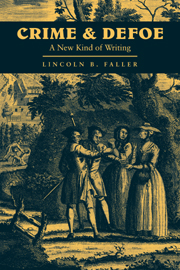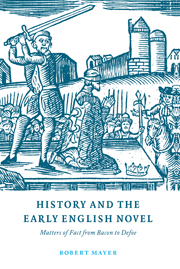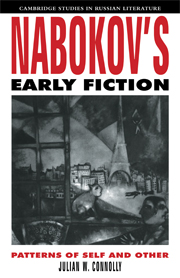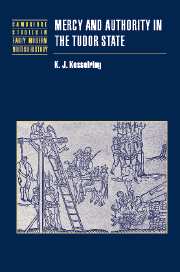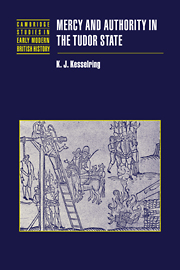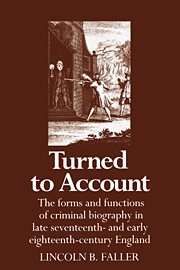Crime and Defoe
This book seeks to recover something of the original excitement, challenge and significance of Defoe's four novels of criminal life by reading them within and against the conventions of early eighteenth-century criminal biography. Crime raised deeply troubling questions in Defoe's time, not least as a powerful sign of the breakdown of traditional social authority and order. Arguing that Defoe's novels, like criminal biography, provided ways of facing and working through, as well as avoiding, certain of the moral and intellectual difficulties that crime raised for him and his readers, Faller shows how the 'literary', even 'aesthetic' qualities of his fiction contributed to these ends. Analysing the ways in which Defoe's novels exploited, deformed and departed from the genre they imitated, this book attempts to define the specific social and political (which is to say moral and ideological) value of a given set of 'literary' texts against those of a more 'ordinary' form of narrative.
- The first book on Defoe to situate his fiction in the context of popular writing
- Deals with major novels such as Moll Flanders and Roxana
- Engages with contemporary social history, and with current theoretical debates about the relative status of literature and other, popular forms of writing
Product details
April 2011Adobe eBook Reader
9780511881473
0 pages
0kg
This ISBN is for an eBook version which is distributed on our behalf by a third party.
Table of Contents
- Preface
- 1. Romancing the real: the field of criminal biography
- 2. Defoe's realism: rough frames, strange voices, surprisingly various subjects and readers made more present to themselves
- 3. The copious text: opening the door to inference, or, room for those who know how to read it
- 4. Imitations of an invisible hand: the mind exercised, enlarged and kept in play by strange concurrences
- 5. The general scandal upon business: unanswerable doubts, and the texts as a field supporting very nice distinctions
- 6. The frontiers of dishonesty, the additions and concurrence of circumstances: more on the strategic situating of names
- 7. Notions different from all the world: criminal stupidity, the self, and the symbolic order
- Closing comments: truth, complexity, common sense and empty spaces.

